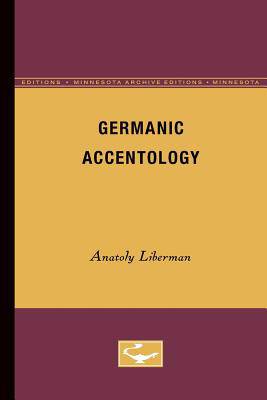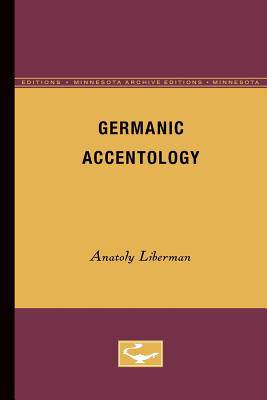
- Retrait gratuit dans votre magasin Club
- 7.000.000 titres dans notre catalogue
- Payer en toute sécurité
- Toujours un magasin près de chez vous
- Retrait gratuit dans votre magasin Club
- 7.000.0000 titres dans notre catalogue
- Payer en toute sécurité
- Toujours un magasin près de chez vous
Description
Germanic Accentology was first published in 1982. Minnesota Archive Editions uses digital technology to make long-unavailable books once again accessible, and are published unaltered from the original University of Minnesota Press editions.
The Scandinavian languages are among the few living Indo-European languages that possess a ramified system of special tones or accents. Such accents are widespread in the languages of Africa and Asia (creating, for example, the singsong character of Chinese and Vietnamese), but in the vast territory occupied by the Indo-European family only the Scandinavian languages, some German dialects, Lithuanian, Latvian, and Serbo- Croatian have similar accetologies. The function and origin of the Scandinavian accents are central problems facing linguists and are the issues that Anatoly Liberman confronts in this book.
Liberman uses the methods of synchronic and diachronic phonology to explore the current status of Scandinavian accentology and to reconstruct its historical development. In the first, synchronic, group of chapters he analyzes the accents and accent-like phenomena in all the modern Scandinavian languages, comparing the literary languages with spoken dialects, and drawing from all of the published descriptions of and theories about Scandinavian prosody. In the final, diachronic, chapter he presents a new hypothesis on the origins of Scandinavian accentology based upon his descriptive material. Throughout, his theoretical approach is that of a functionalist.
Spécifications
Parties prenantes
- Auteur(s) :
- Editeur:
Contenu
- Nombre de pages :
- 410
- Langue:
- Anglais
Caractéristiques
- EAN:
- 9780816658183
- Date de parution :
- 28-06-82
- Format:
- Livre broché
- Format numérique:
- Trade paperback (VS)
- Dimensions :
- 152 mm x 229 mm
- Poids :
- 544 g

Les avis
Nous publions uniquement les avis qui respectent les conditions requises. Consultez nos conditions pour les avis.






